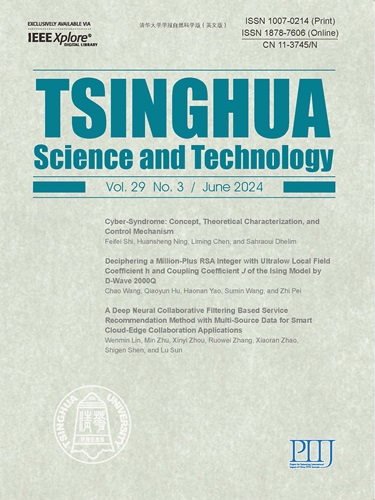Attack and Defense Game with Intuitionistic Fuzzy Payoffs in Infrastructure Networks
IF 6.6
1区 计算机科学
Q1 Multidisciplinary
引用次数: 0
Abstract
Due to our increasing dependence on infrastructure networks, the attack and defense game in these networks has draw great concerns from security agencies. Moreover, when it comes to evaluating the payoffs in practical attack and defense games in infrastructure networks, the lack of consideration for the fuzziness and uncertainty of subjective human judgment brings forth significant challenges to the analysis of strategic interactions among decision makers. This paper employs intuitionistic fuzzy sets (IFSs) to depict such uncertain payoffs, and introduce a theoretical framework for analyzing the attack and defense game in infrastructure networks based on intuitionistic fuzzy theory. We take the changes in three complex network metrics as the universe of discourse, and intuitionistic fuzzy sets are employed based on this universe of discourse to reflect the satisfaction of decision makers. We employ an algorithm based on intuitionistic fuzzy theory to find the Nash equilibrium, and conduct experiments on both local and global networks. Results show that: (1) the utilization of intuitionistic fuzzy sets to depict the payoffs of attack and defense games in infrastructure networks can reflect the unique characteristics of decision makers' subjective preferences. (2) the use of differently weighted proportions of the three complex network metrics has little impact on decision makers' choices of different strategies.基础设施网络中带有直觉模糊回报的攻防博弈
由于我们越来越依赖基础设施网络,这些网络中的攻防博弈引起了安全机构的高度关注。此外,在评估基础设施网络中实际攻防博弈的回报时,由于缺乏对人类主观判断的模糊性和不确定性的考虑,给决策者之间的战略互动分析带来了巨大挑战。本文采用直觉模糊集(IFS)来描述这种不确定的报酬,并引入了基于直觉模糊理论的基础设施网络攻防博弈分析理论框架。我们将三个复杂网络指标的变化作为话语空间,并在此话语空间的基础上使用直觉模糊集来反映决策者的满意度。我们采用基于直觉模糊理论的算法来寻找纳什均衡,并在局部和全局网络上进行了实验。结果表明(1) 利用直觉模糊集来描述基础设施网络中攻防博弈的报酬,可以反映决策者主观偏好的独特性。(2) 使用三种复杂网络指标的不同加权比例对决策者选择不同策略的影响很小。
本文章由计算机程序翻译,如有差异,请以英文原文为准。
求助全文
约1分钟内获得全文
求助全文
来源期刊

Tsinghua Science and Technology
COMPUTER SCIENCE, INFORMATION SYSTEMSCOMPU-COMPUTER SCIENCE, SOFTWARE ENGINEERING
CiteScore
10.20
自引率
10.60%
发文量
2340
期刊介绍:
Tsinghua Science and Technology (Tsinghua Sci Technol) started publication in 1996. It is an international academic journal sponsored by Tsinghua University and is published bimonthly. This journal aims at presenting the up-to-date scientific achievements in computer science, electronic engineering, and other IT fields. Contributions all over the world are welcome.
 求助内容:
求助内容: 应助结果提醒方式:
应助结果提醒方式:


